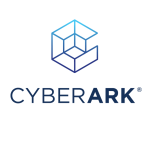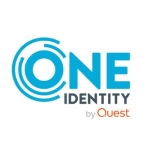What is our primary use case?
We use it for storing secrets for different accounts. If a service account or a storage account or a resource needs access to a resource, and there's a password involved, you would book out a password, and access Key Vault to gain access to the password, and get access to the resource.
How has it helped my organization?
The ability to use identity access management incorporated with RBAC is important for us. It helps us ensure the governance and security posture is secure and logical.
What is most valuable?
Among the features that have helped improve our security posture are storing secrets in a secure location to create a trusted situation, trusted resources, and incorporating identity access management so that we know who has access to what.
In addition, it hasn't affected our end-user experience. It's seamless.
What needs improvement?
One of my previous clients was one of the big banks here in the Netherlands and the EU courts have stated that Microsoft Azure Key Vault is not, according to their perspective, secure due to the fact that Microsoft has access to Key Vault. If you cannot demonstrate that only you, as an organization, have access to your secrets, then you are not in control of your secrets. That is a concern.
Also, a big issue is the configuration. It could be that the people working on the solution, the system engineers, might lack knowledge and not incorporate all the best practices from Microsoft. The way they've implemented it might not be the way Microsoft envisioned it. It's always back to who's implementing what for you as a solution.
For how long have I used the solution?
We've been using Microsoft Azure Key Vault for two to three years.
What do I think about the stability of the solution?
What do I think about the scalability of the solution?
The scalability is very good. It's up to your imagination and how big you want to make your resilience and high availability and so on.
We have plans to increase our usage because we are going to launch new websites for specific regions. There will just be more resources needed.
How are customer service and support?
Microsoft has a support team that calls our security team every two weeks to discuss any topics and issues, and to talk about topics of the day or the week. It might be about resilience or expansion or features that are changing and new releases. It's good to have a meeting at least every two weeks that gives us the opportunity to speak to Microsoft account management.
How would you rate customer service and support?
How was the initial setup?
The initial setup was straightforward. It's already incorporated in Azure, so you can just use it. It took minutes to deploy.
What was our ROI?
The ROI is due to the fact the services keep on growing. It's better, it's more secure, and it grows. It's becoming a better product.
Which other solutions did I evaluate?
Our customer did not evaluate other products. They mostly want to do things native to Microsoft Azure, so that's their first port of call. And if Azure services cannot provide the functionality that they need, then they will go and look outside.
What other advice do I have?
Other service providers try to lower the prices, but it all depends on your development environment and your core skills. You are a bit more stuck if you are coding in .NET. If you go down that route, you can't easily move out to another service provider. Maybe you can go the route of adding a new team with a different service provider, but then you will need to mash it together. You would need to evaluate if that is a good option.
We have about 70 developers and they are in different teams. They interact with third parties and they have different roles, including front-end and back-end developers. Each one creates services for different websites for different regions, to sell e-vape cigarettes. And we have team leaders who use it as well. There's a security team of five people responsible for the infrastructure of Azure, including creating new resources or whatever is necessary for the dev teams. There are also operations management and product owners who make decisions on schedules, what will be built, and priorities.
Deployment and maintenance are part of the security engineers' work, to manage any issues. Sometimes the dev teams get involved with root cause analysis if something is going wrong with a web application. We have a team for certain maintenance tasks and requests.
The biggest lesson I've learned from using this solution is: "Stay secure."
Disclosure: I am a real user, and this review is based on my own experience and opinions.



















